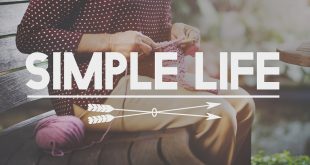Your beliefs don’t make you a better person, your behavior does! Buddhism is all about training the mind, and Buddhist Boot Camp is an ideal training method for this generation’s short attention span. Timber Hawkeye offers a non-sectarian approach to being soldiers of peace in the army of love. CJ talk to Timber about having faith and living in accordance with your highest values.
Faithfully Religion-less
Many of Timber Hawkeye’s fans have asked him to compose a memoir of his personal stories that details his journey through life. His upcoming book “Faithfully Religionless”planned for later in the year will explore common trials and tribulations and share “how he did it” approach that so many of those that sit in circle with him enjoy. The book will not only allow us to connect with ourselves on a deeper level, but also engage us in inquiry into modern day dilemmas. In a world where superficial and social media connections dominate, Timber’s approach is about sharing what it’s like living a real life full of both ups and downs versus projecting a false Facebook sense of perfection.
Timber came up with the title, because even though he does believe in God, he doesn’t follow one religion. “Faithfully religion-less” reflects a faith in God that is not tied to any particular doctrines.
Timber notes that this book is not anti-religion as he recognizes that religion helps many enrich their faith and helps in creating a sense of belonging. His first book “Buddhist Boot Camp” and his upcoming book helps bring back those who may have left the church behind due to experiences with the church or the Bible that turned them off to religion and GodHis approach is also for those who want to follow a spiritual path, but aren’t attracted to religion.
https://youtu.be/6rk9XNEzV1c?t=18m24s
What does it mean to live from LOVE (vs Fear)?
Timber Hawkeye explains that through self-development, we enhance the love we have for ourselves which can then lead to offering it to others. He describes his formula and the initial steps he took toward navigating life through love versus fear here: (https://youtu.be/6rk9XNEzV1c?t=6m13s).
He found that faith was a critical piece of his journey. After contemplating, experimenting, and examining his initial skepticism about faith, he found that in order to get to it, he needed to first let go of the need to know. Timber further clarifies that this does not mean let go of everything; it means being ok with how life manifests things. All you have to do is be clear with your values and intentions. The details of how it will show up are not important. Through his own experience, Timber discovered that when he relinquishes control of his life and hasfaith, what is best for him manifests on its own.
“We have to let go of the blueprint. Letting go of the idea in our heads about exactly how things are supposed to work out. Sometimes things are actually working out in our favor, and we don’t realize that they are because they are not playing out the way we thought they would. Sometimes when things are falling apart, they are actually falling into place, but we are so quick to look at it and judge it as a negative and say “this is happening TO ME” rather than this is happening FOR me. Nothing happens to me, I’m not a victim…” Timber Hawkeye
Timber shares a meditation that his teachers encouraged him to try to build faith. He was to chant “DON’T KNOW” and sit in that place until he was comfortable with not knowing.
VIDEO: Timber shares two unbelievable stories of how his intentions and faith alone resulted in gifts of grace here: https://youtu.be/6rk9XNEzV1c?t=7m55s. How he manifested reality here: https://youtu.be/6rk9XNEzV1c?t=11m52s
If you want to start trying to live in this way, then experiment and try it yourself. Timber explains how maybe you, like him, may have experimented with skepticism long enough to know the unhappy results of living that way. For one month, he encourages us to get rid of the blueprint, not give everything in our lives weight, keep our minds open, not react, observe, and believe that things will work out. It’s about believing that regardless of what happens, I’ll be ok. He points out that if we are scared by the idea of not knowing, then often we miss the invitation to new possibilities? https://youtu.be/6rk9XNEzV1c?t=14m37s
Other resources: Get another perspective on Love through Guy Finley: http://www.fireitupwithcj.com/what-is-love/
Psychology: Living in alignment with your core values
Part of Timber’s journey has taken him all over the world to visit with people, sit in circle, and share the common problems we all face. He has found that the most powerful exercise for people in circles throughout the world was to write down their core values, describe the kind of person they want to be, and cross-reference with who they are and what they need to do. By doing this, they were able to live in alignment with their core values. https://youtu.be/6rk9XNEzV1c?t=20m46s
Resource:
- Online discussion about honesty and transparency http://www.meetup.com/BuddhistBootCamp/events/219737755/
- How can I find my life purpose? Why do I feel like there is no meaning in my life? Life coach, Eric Maisel, shares his book “Life Purpose Boot Camp: The 8-Week Breakthrough Plan for Creating a Meaningful life? Get the full interview here: https://youtu.be/333TMLUIv_s
How to make a relationship work? Parenting and Partner squabBles
Timber discusses how you may not always live in alignment with your values. For example, what happens when you honor LOVE but find yourself yelling at your partner or kids? Timber reminds us that parents make mistakes too and that they are a work of progress, just like our kids. Thus, it’s important to model this fact to our children. It’s about establishing a mindset that “we are in this together” versus opting for the typical hierarchical relationship that most parents have with their kids.
https://youtu.be/6rk9XNEzV1c?t=25m26s
Resources:
- The pioneering expert behind The Whole-Brain Child—Daniel J. Siegel explores the ultimate child-raising challenge: discipline. The No-Drama Discipline approach provides an effective, compassionate road map for dealing with tantrums, tensions, and tears—without causing a scene. Learn about child brain development and what kind of strategies work best to calmly and lovingly connect with a child—no matter how extreme the behavior—while still setting clear and consistent limits. https://youtu.be/6xakPtVOmq4
- From couples therapist Jonathan Robinson, learn how to fix the 12 most common relationship problems and what to say to your partner about thorny issues, such as spending more quality time together, money management, and splitting domestic duties: http://www.fireitupwithcj.com/fix-relationship-problemsjonathan-robinson/
Accountability: Owning your own choices
Another common theme in the Buddhist Boot Camp meetings is taking accountability and owning your stuff, meaning not blaming other people for your feelings. Saying to someone “You make me feel…” places you as the victim and reveals that your inner peace can be disturbed by another person’s behavior. Being accountable is about recognizing that no one can MAKE you feel anything; instead you are choosing to feel something.
Timber talks about how you can feel your emotions, honoring the temporary nature of them and then letting them go. https://youtu.be/6rk9XNEzV1c?t=28m43s.
Timber shares a practice he learned on dealing with his own demons and how meditation has helped him prevent his inner peace from being rattled by others here: https://youtu.be/6rk9XNEzV1c?t=32m09s.
“No one can make you feel inferior without your consent.” – Eleanor Roosevelt
Resources:
- 20 hour work week: https://youtu.be/Pf69gA_BqY4
- Empath: Karla McLaren shares the secrets of how emotions work and how you can tap into the astounding genius and vital set of intelligences within you versus throwing your emotional upset to others. Get more details at: https://youtu.be/HUat8fprF-A
- Buddhist teacher: Sharon Salzberg shares: Who are the inner, outer, secret, and super secret enemies when it comes to anger? What are skillful and less skillful ways of dealing with our anger when societal issues arise? Is it best to hold on to our anger? What is the upside of anger? How is anger related to sadness, hopelessness, etc? What are some strategies for dealing with our anger? https://www.youtube.com/watch?v=E6lu7w8vSsk
- Learn how you can use Susan’s 5 Minute Relationship Repair to resolve conflict with your partner using neuroscience research. Get more information on the process here: https://youtu.be/pa6NvDgK7Dc
What do prisoners care about the most?
Part of Timber’s path has been to bring his work to correctional facilities as a way to provide the help and information they need. As Timber says “They [correctional facilities] are not storage units”.
He shares a touching story of gratitude from an inmate he met in California’s largest prison.https://youtu.be/6rk9XNEzV1c?t=39m04s.
Resources:
- Make a donation to Books for Prison and get 6 hours of recorded sessions with Timber Hawkeye. Help get paperback versions into prisons. http://www.buddhistbootcampbasictraining.com/
The power of sitting in circle
According to Timber, there is a hunger for congregation, but resistance towards religion.
Incredible power manifests with sitting in circle and Buddhist Boot camp offers the space where you can sit in circle and celebrate your faith, success stories, relationship and life challenges https://youtu.be/6rk9XNEzV1c?t=42m34s.
Resources:
- Thanks for Sharing: http://www.imdb.com/title/tt1932718/
- Sign up for Seattle event on April 3: http://www.meetup.com/BuddhistBootCamp/events/221282298/
- Sign up for a newsletter to find a circle in your area or create a Skype circle in your city by reaching out to Timber at http://www.buddhistbootcamp.com/.
 Conscious Calling
Conscious Calling



